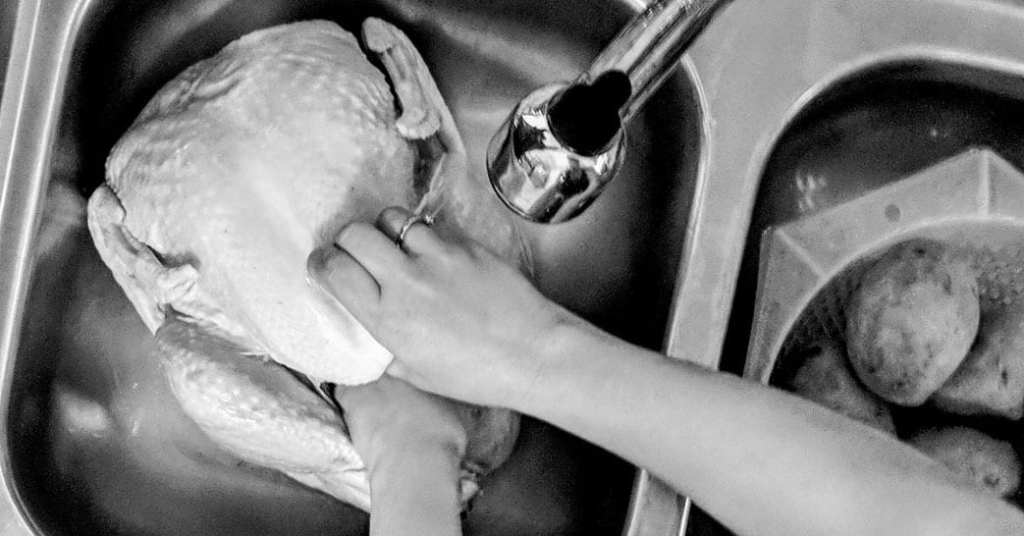Trending Now
You may want to think twice before rinsing your turkey this Thanksgiving.
While many home cooks believe in bathing their bird before popping it in the oven or deep fryer, this common practice carries many potential dangers. Rinsing raw poultry to wash away dangerous microbes like Salmonella may seem like a logical idea, but it can be more harmful to you and your guests than you might expect.
In fact, this seemingly sanitary step could lead to far worse problems than burnt stuffing or a separated gravy.
Of course, washing a turkey in the sink can help get rid of harmful bacteria on the bird’s surface. Yet, that same bacteria then ends up brewing in the bottom of your sink rather than disappearing down the drain. Those potentially lethal pathogens can also end up on your hands and clothes, as well as countertops, cooking utensils and cabinet and sink handles.
And you may want to hold your breath on this one because microbes like Salmonella can even linger in the air right inside your own home!

Photo Credit: Unsplash
To lower the chances of contracting Salmonella, there is a simple three-step process you should follow. First, thaw your Thanksgiving turkey thoroughly in the refrigerator. After your bird is defrosted, keep contact at a minimum. Use paper towels to dry the outside of the turkey before cutting away any extra fat and skin (don’t forget to season it to taste!). You can reduce the risk of cross-contamination by frequently washing your hands as well as any knives, plates or other kitchen utensils that came in contact with the turkey.
Finally, once you have nestled the bird into the oven, make sure it is cooked to the proper internal temperature based on its weight. You can even wow your guests by deep frying your bird for extra crispy deliciousness. Whatever method of cooking and seasoning you choose, steer your turkey clear from the sink entirely to keep your Thanksgiving guests safe.






